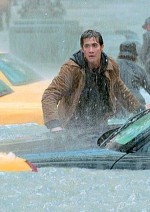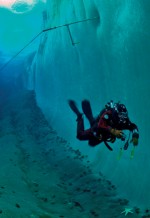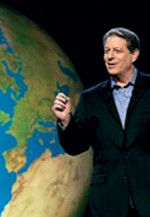3 films that will get students talking about climate change.
Is climate change different from global warming? What are its causes and possible consequences? Climate change is a complex and emotive issue, about which scientists don’t always fully agree; but certain facts are clear – our planet is getting warmer, largely as a result of human activity, and floods, droughts, severe heat waves and other extreme weather conditions are increasing as a result.
As well as sparking heated debates between scientists and world leaders, the subject of climate change has inspired some fantastic, thought provoking and controversial films. The education charity FILMCLUB has selected three of the best, complete with talking points and review starters, especially for Teach Secondary readers.
Independent research shows that watching, discussing and reviewing films with their peers under the guidance of a teacher helps pupils to better understand complex issues and is an effective means of stimulating debate and boosting informal learning. In a survey of teachers, 87% said FILMCLUB enhances young people’s ability to share and debate their conclusions with others. “It engages pupils who would not otherwise be engaged in after school activities and broadens their minds,” says the club leader at Bishop Challoner Catholic college, Birmingham.
FILMCLUB Recommends…

The Day After Tomorrow (2004), 12
Ecological disaster movie in which the rapid onset of global warming envelopes America under a new Ice Age, forcing teenager Sam to try and survive arctic New York.
Discussion points:
1. Some have criticised this film for straying too far from scientific facts. Is accuracy important?
2. If you knew the world was ending in 24 hours what would you do?
3. What do you think is the most important single thing individuals can do to stop a film like The Day After Tomorrow becoming reality?
Review starter
“In many ways The Day After Tomorrow is a typical action blockbuster, but this is also what makes it such a great campaigning film for the environment…”

Encounters at the End Of The World (2007), U
When legendary director Werner Herzog journeys to Antarctica, the people he meets there are just as fascinating as the wildlife.
Discussion points:
1. In what ways is this different from other documentaries you have seen?
2. Encounters is not explicitly a film about climate change, but it still has a lot to say about it. How does it get its message across?
3. As this film reveals, there are a lot of eccentric people living on the edge of our planet. Who is your favourite?
Review starter
“Unlike some other filmmakers, Werner Herzog doesn’t use rhetoric to get his environmental message across, preferring a means that’s much more visual…”

An Inconvenient Truth (2006), U
Thought-provoking assessment of the causes and symptoms of climate change from former US presidential candidate Al Gore.
Discussion points:
1. Do you think this kind of film is effective at changing the way we treat the planet? Why/why not?
2. Which part of the film did you find most interesting? Did it keep your attention from start to finish?
3. What, if anything, would you change about the film to make it more effective?
Review starter
“An Inconvenient Truth has been a very controversial film in American politics since its release…”
Take it further
FILMCLUB members can order these and thousands of other great movies free from the website, with DVDs delivered direct to schools by LOVEFILM; download free film guides and teaching resources; write prize-winning reviews; enter competitions; and quiz filmmakers in monthly live webcasts. Visit filmclub.org, email schools@filmclub.org or call 0207 288 4520.








